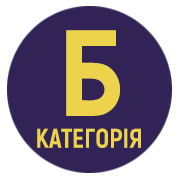ACTIVITY-ORIENTED LEARNING IN GERMANY AND UKRAINE: A COMPARATIVE ANALYSIS OF ORGANIZATIONAL AND METHODICAL ASPECTS
DOI:
https://doi.org/10.32782/ped-uzhnu/2024-4-6Keywords:
activity-oriented learning, secondary school, foreign language, reading instruction, LATILL, education model, GermanyAbstract
The article is dedicated to describing the opportunities for foreign language learning that activity-oriented learning provides, as it ensures high mobility, flexibility, and adaptability of education in modern conditions. This is one of the conditions for forming students’ mobility in their future professional activities. Within our research, activity-oriented learning in German schools, the German model of “student activity-oriented learning”, and the implications of this research for education in Ukraine are studied. The contradictory development of economic relations in Ukraine justifies the necessity of reflecting on the historical experience of preparing students for foreign language communication, identifying priority areas of modern professional-pedagogical activity, and studying foreign practices in this field. Given the historically formed business and cultural ties between Ukraine and Germany and the various forms of business interaction between the two countries, evident examples of which are the high level of development of Ukrainian-German relations in the field of economics and German-Ukrainian projects for foreign language learning, particularly LATILL, the importance of a comparative analysis of the education systems of Germany and Ukraine increases. The analysis of the German education model is also due to Germany’s status as a highly developed economic country. During the research, one of the educational models applied in Western practice, particularly in Germany, was studied – activity-oriented learning for future professionals. This is one of the methods tested in German practice for teaching students decision-making skills and independent problem-solving, which plays an important role in the country’s economic development. Based on the German model, we developed an activity-oriented model for teaching foreign language reading to secondary school students. We conducted experimental research and analyzed its results. In particular, the significance of the activity-oriented approach in teaching foreign language reading was determined, and the initial level of skill formation was identified. The research revealed that to improve foreign language reading instruction, it is necessary to use new forms, methods, and technologies, integrate natural, economic, and humanitarian knowledge, and structure the material. Introducing a differentiated approach to selecting texts will also contribute to enhancing the effectiveness of foreign language reading instruction.
References
Загальноєвропейські Рекомендації з мовної освіти: вивчення, викладання, оцінювання. URL: http://www.khotiv-nvk.edukit.kiev.ua/Files/downloads/ zagalnoyevrop_rekom.pdf (дата звернення 26.07.2024)
Полонська Т. К. Сутність компетентнісно орієнтованого навчання іноземних мов у початковій школі. Педагогічна освіта: теорія і практика: збірник наукових праць Кам’янець-Подільського національного університету імені Івана Огієнка, Інститут педагогіки НАПН України. №22. 2017. Ч. 2. С. 294–300.
Редько В. Г. Дидактичне моделювання мовленнєвих ситуацій як засобів компетентнісно орієнтованого навчання іноземних мов у закладах загальної середньої освіти. Український педагогічний журнал. № 1. 2021. С. 30–42.
Чорній В. Діяльнісно-орієнтований підхід у вивченні іноземної мови, його функціонування для отримання кінцевого результату – спілкування комунікації. Modern Information Technologies and Innovation Methodologies of Education in Professional Training Methodology Theory Experience Problems. № 5. 2021. С. 696–700.
AI-based platform for accessing level-appropriate texts on specific topics. URL: https://latill.eu/ (дата звернення 26.07.2024)
Bund-Länder-Kommission für Bildungsplanung und Forschungsförderung. Geschäftsstelle. URL: http://www.blk-bonn.de/papers/jb2002.pdf (дата звернення 26.07.2024)
Council of Europe: Common European Framework of Reference for Languages: Learning, Teaching, Assessment (CEFR). Companion Volume with New Descriptors. URL: https://rm.coe.int/common-europeanframework-of-reference-for-languages-learning-teaching/16809ea0d4 (дата звернення 26.07.2024)
Enhancing Adaptive Teaching of Reading Skills Using Digital Technologies: The LATILL Project DOI:10.1007/978-981-99-0942-1_115 (дата звернення 26.07.2024)
History of vocational education and training in Europe: from divergence to convergence. https://www.cedefop.europa.eu/files/32-en.pdf (дата звернення 26.07. 2024)
Johann Fischer. The underlying action-oriented and task-based approach of the CEFR and its implementation in language testing and assessment at university Language Learning in Higher Education, 10(2), 2020. P. 301–316.
Kienberger, M. et al. Enhancing Adaptive Teaching of Reading Skills Using Digital Technologies: The LATILL Project. In: García-Peñalvo, F.J., García-Holgado, A. (eds) Proceedings TEEM 2022: Tenth International Conference on Technological Ecosystems for Enhancing Multiculturality. TEEM 2022. Lecture Notes in Educational Technology. Springer, Singapore. 2023. URL: https://doi.org/10.1007/978-981-99-0942-1_115
Pyliavets, M., Protas, O., Martynens, L., Lyashkevich, A., Babyshena, M., Chumak, L., & Lazorko, O. A. Comparative Analysis of Peculiarities of Vocational Education in Ukraine and Germany. Revista Românească pentru Educaţie Multidimensională. 12(3), 2020. P. 200–212.







